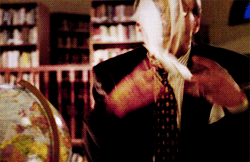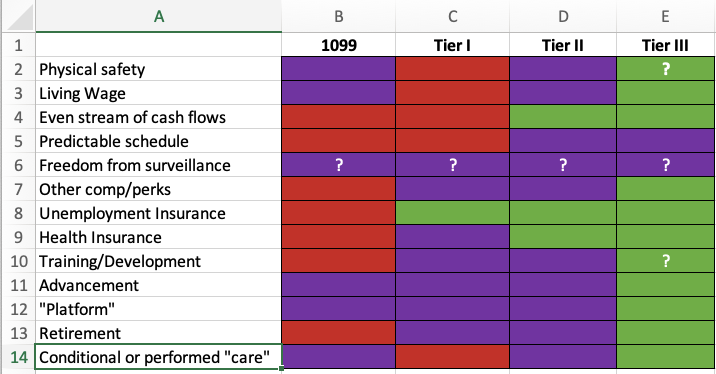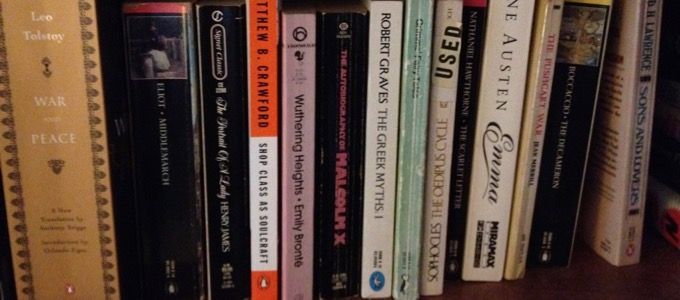Mission and a Transition, On Management #30

(I’m bringing my archive over from Mailchimp — this newsletter is from August, 2018.)
This Call Is Now Being Recorded: Ashley Milne-Tyte and Amy Vernon
This month I talked with Ashley Milne-Tyte, journalist and host of The Broad Experience, and Amy Vernon, VP of Community at Rivetz.
Our topic: books that influenced their work.
- Amy’s pick was The Player of Games (library), by Iain M. Banks.
- Ashley told me about Linda Babcock and Sara Laschever’s Ask for It: How Women Can Use the Power of Negotiation to Get What They Really Want (library)
Ashley shared why it's important to learn to negotiate. We discussed whether it's fair to have to negotiate to be paid fairly. Ashley's also done two recent shows on the topic:
- Episode 128: You're Worth It - the Power of Negotiation (part 1)
- Episode 129: Will they Still Like Me? The Power of Negotiation (part 2)
Amy talked with me about the work that happens before, during, and after we can legitimately claim to be experts -- and we touched on world building in sci-fi.
And both Ashley and Amy shared wisdom that's useful at work, especially during job changes and other transitions.
On Mission?
Some years back, I said that mission is a story. Today, I hold a more nuanced view.
In the US, the mission of public service is to uphold the Constitution. An orchestra exists to make and share music.
Mission is an organization or institution’s highest purpose. Stories are about what we really do, and why and how we do it.
At work, our stories, warts and all, are cultural artifacts. The truest stories at work may reflect how we're failing to meet our mission.
Mission is an aspiration. Stories about things that happened at work are lived truth.
What we come in and do every day is not “mission.” It’s a bunch of actions. A leader’s role is to ensure that our actions, in aggregate, live up to the organization’s mission. When this happens, our story is the hero’s journey.
Maybe we claim our mission is “change the world,” or “don’t be evil.”
Then we might stray, and create organizations that obscure how we handle user data, abuse the people who deliver our services, or enable a hostile workplace environment. In this case, our story is a tragedy.*
In On Management #29, Kirsten Lambertsen talked about how a hero’s journey had inspired her at work. In Working Girl, the mission is for talent to rise up and be recognized (and rewarded financially); the heroine comes up against a “meritocracy” that wants her to be underemployed and invisible (and a low-earner.)
Your organization’s mission is probably on your website, in your employee manual, and maybe even painted on the wall.
I like to keep it practical here, to write things that you can actually use. This month, a practical call to action.
Take your organization's mission statement. Write it down. I even suggest writing in longhand. Put it up on your whiteboard.
Interrogate this mission. You and your team members are investing many waking hours enacting it.
Or, are you?
*(I love the film version of The Devil Wears Prada for turning an impending tragedy into a hero’s journey. Brava, screenwriter Aline Brosh McKenna.)
On Personal Mission (A Side Project)
Do you have a personal mission?
My hypothesis: we're less susceptible to burnout when we have a stronger frame around our own mission. And, articulating our own mission enables us to think more critically about other missions we're asked to support.
So I'm cooking up a couple of ways to support people who want to write a personal mission statement. One's online, the other involves a small group gathering in NYC this fall.
Interested? Curious? Hit me up here and I'll send you more info.
What I've been reading, &
- This month in workplace surveillance: This "Creepy" Time-Tracking Software Is Like Having Your Boss Watch You Every Second, by Caroline O'Donovan at Buzzfeed News.
- Surveillance, part deux. Share this when asked to wear devices that send your activity/workout data to an insurance company: Do Workplace Wellness Programs Work? Usually Not, by Austin Frakt and Aaron E. Carroll at The New York Times.
- In this month's audio, Amy Vernon and I veered into world-building. This concept may be useful when thinking about consistency as a leadership value. I like author Kate Messner's short video, How to Build a Fictional World.
Last gasps of summer reading bliss
Tell me about a series of detective-type novels, and I'm all in. For one thing, they're always about a workplace, of sorts, and relationships between people at work. This summer, I've devoured books by several new-to-me authors:
- Steph Cha's Juniper Song series. Steph Cha talks about the L.A. immigrant noir of 'Dead Soon Enough' by Ivy Pochoda at The Los Angeles Times.
- Gwen Florio's Lola Wicks series. Gwen Florio's 'Montana' Begins New Mystery Series by Chérie Newman at Montana Public Radio.
- Jane Casey's Maeve Kerrigan series. Jane Casey – The Reckoning by Vanessa O'Loughlin at writing.ie.
- And I just learned about Naomi Hirahara’s Officer Ellie Rush series, via Kerry Howell on Twitter. Now on my TBR.
- (A few years back, I read every one of Lee Childs' Jack Reacher novels. In order. Jack is an icon of a post-employment world, and I'm an unrepentant fan. The New Yorker's David Remnick has already read an advance review copy of the next book in this series: I'm green with envy. And on the movie Reacher? No, not Tom Cruise, just no.)
Thanks to Ashley Milne-Tyte and Amy Vernon for talking with me about books that helped them at work.
Thank you, Supporting Members, for being supportive. You'll hear more from me on mission, and what I'm currently calling missionwashing -- ways that mission is misused.
Thank you for reading,
Anne Libby
@annelibby
P.S. Did you miss Issue #29, Summer Reading? It's right here.
If You're Into Process: On my Substack Transition
In December I soft-launched Supporting (paid) Membership for Anne Libby On Management, with a simple Paypal link.
This spring, I added a monthly subscription option. t has been too exciting to have people join me, and diving deeper into topics around managing people at work. Thanks to everyone who has signed up.
Next month, I'm upping the game, and heading over to Substack. You don't have to do anything to continue to receive the free newsletter every 4-6 weeks.
Substack's payment mechanism is easier to manage than the one I hacked together on my own. There are other paid membership features, like discounts for organizations. Could I set this up for myself? Maybe. Do I have to? No. #relieved.
I'm also looking forward to what Substack may build to enable community discussion. Right now, their direction is not clear. However, it is clear that discussion is not a service I'll build myself using Mailchimp. So I'm excited.
(Also a bit nervous about technical stuff for the transition. Will I wind up in spam? Please do whitelist people@substack.com.)
If you have any questions, please shoot me an email. Stay tuned!





